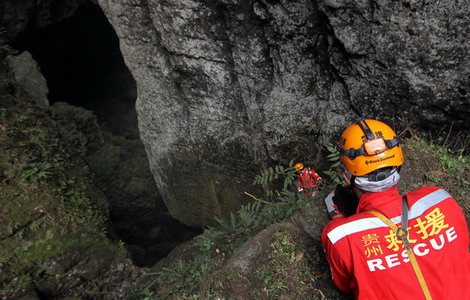 |
|
|
|
|||||||||||
BEIJING - Chinese medical experts have urged the establishment of a scientific and transparent national system for human organ donation and distribution to encourage organ donors.
Trial systems have been launched in 16 of the Chinese mainland's 31 provincial-level regions, and as of March 15, a total of 207 donations have been conducted within this program, saving the lives of over 500 critically ill patients, according to a report in the Friday edition of People's Daily, the flagship newspaper of the Communist Party of China.
Vice Health Minister Huang Jiefu told a conference on Thursday that within three to five years China will abolish the practice of harvesting human organs for transplants from prisoners facing the death penalty.
Huang said China is creating a national organ donation system to reduce its reliance on organ donations from death row inmates and encourage donations from the public. However, according to the newspaper report, there is still no specific timetable for the national program.
Executed prisoners, with their prior consent, are believed to be a major source of transplanted organs.
Efforts to encourage the public to donate organs and widen the legal sources of organs should be the only solution to the current shortage of transplant organs in China, Hao Linna, vice president of the Red Cross Society of China (RCSC), was quoted as saying in the newspaper.
Furthermore, as the government bans organ transplants from living donors, except for close family members such as spouses and blood relatives, in a regulation issued in 2007, a nationwide independent professional panel is also needed to determine eligible donors and the distribution of the donated organs, Hao said.
Statistics from the Ministry of Health show that about 1.5 million people in China need organ transplants, but only some 10,000 transplants are performed annually.
Also, many hospitals have failed, or are reluctant, to identify and report potential organ donors in their operations, especially against the background of strained tensions between doctors and patients in China, Hao said.
The lack of legal organ donors has led to underground networks that profit from illicit organ deals and transplants.
Among the most shocking cases of such deals was a 17-year-old technophile in Anhui province who sold one of his kidneys for 22,000 yuan (3,490 U.S. dollars) through an underground dealer last year, and used the money to buy an iPad 2 and a laptop computer.
A national organ donation system is a complicated one that involves the legal system, human rights and ethical issues, said Zhao Baige, the RCSC's executive vice president.
According to the newspaper, China plans to revise the 2007 regulation this year to further encourage organ donations and supervise transplants.
The health ministry is also working on a system to make the distribution of donated organs more transparent, fair and just, Huang said.
Factors including the candidate recipients' health conditions, waiting time, ages and the matching degree for the transplants will all be considered.
Wu Ying, iPad, Jeremy Lin, Valentine's Day, Real Name, Whitney Houston, Syria,Iranian issue, Sanyan tourism, Giving birth in Hong Kong, Cadmium spill, housing policy

|

|

|

|

|

|